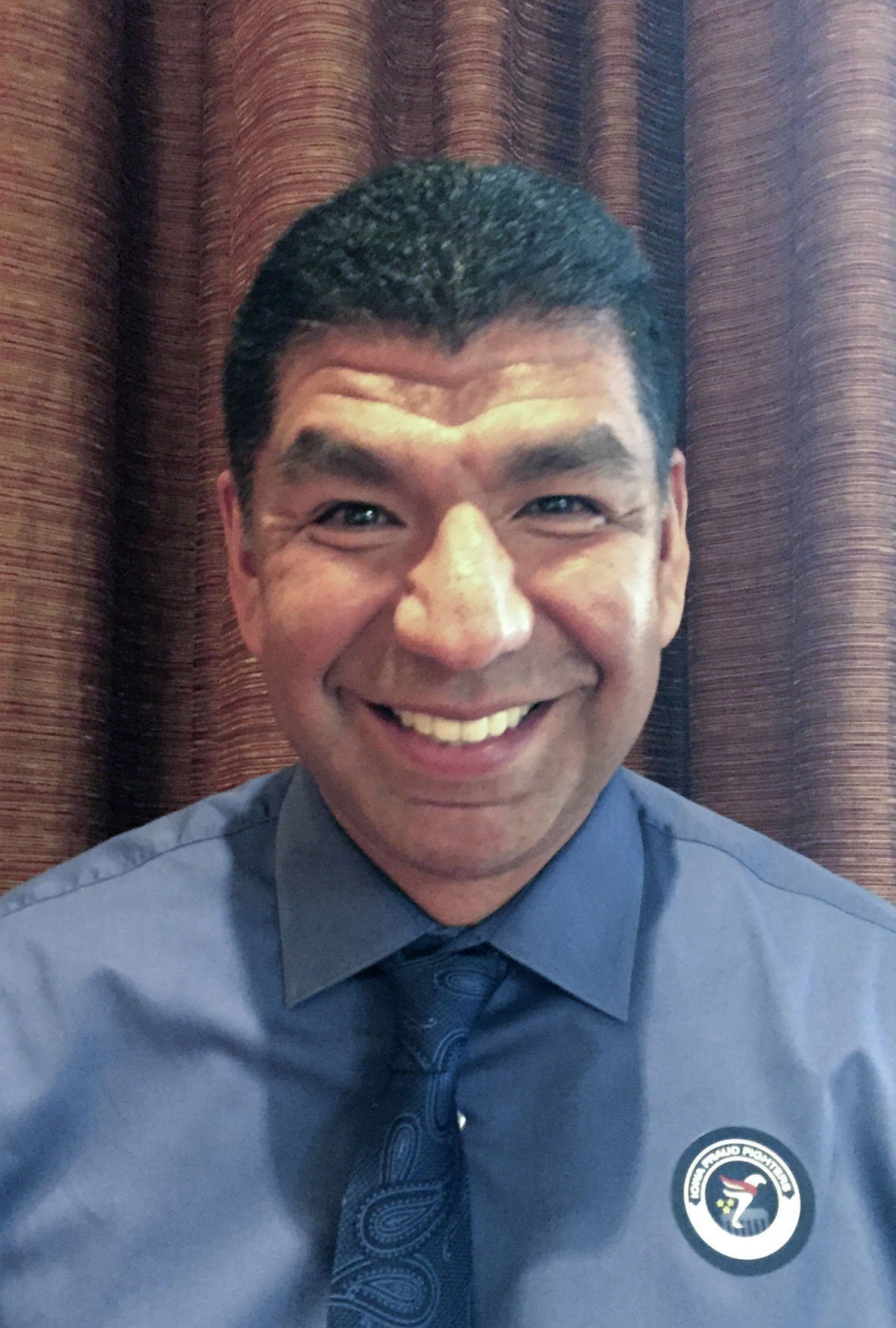As Tom Stovall began a presentation Wednesday in Dubuque, his wife, Linda, excitedly told him that she received a message about winning a trip and needed to provide their bank account number to access it.
The Stovalls, of Dubuque, gave the fake example of how people could end up being scammed while volunteering as presenters at the first stop of AARP Iowa’s Fraud Watch Tour.
“That happens thousands of millions of times a day, and unfortunately, a lot of people fall for it,” Tom Stovall said. “The big thing to remember: If it sounds too good to be true, it probably is.”
The series of free Fraud Watch Tour events, meant to help people learn to recognize and avoid scams, will be held in 12 Iowa communities throughout September. The Dubuque event took place at Keystone Area Education Agency, with about 40 people in attendance.
Al Perales, an investigator with the Consumer Protection Division of the Iowa Attorney General’s Office, said scammers like to target older people in part because so many of them are retired, meaning they are available to answer the phone and have money stored away.
“You’ve worked hard all your lives, and a scammer wants nothing more than to get their hands on the money you’ve worked hard for,” he told attendees. “Another reason I believe they target older Iowans is because you’re ‘Iowa nice.’ And that’s good — that’s a good attribute to have — but they take advantage of that.”
Perales and the Stovalls discussed some of the top scams in Iowa, as well as top scams gaining traction across the country. Below are details on those scams.
Top five scams in Iowa
Phone scams — Linda Stovall said scammers call requesting money for a variety of things, but she stressed that people never should give personal or financial information over the phone. She said people should not answer calls from unknown numbers and can block suspected scam callers.
“Last week, I blocked 30 calls,” she said.
She also recommended shredding everything with a person’s name on it to keep scammers from getting that information.
“Buy a good shredder that cuts it really tiny,” she said. “There are people out there who will get that and glue it back together. They must have more time on their hands than I do.”
Imposter scams — These scams come in the form of a scammer pretending to be someone else. This includes someone claiming to be with a sheriff’s department to report that a person missed jury duty or even a person pretending to be a relative asking for financial help.
“The IRS will never call you. Never,” Linda Stovall said. “If they say they’re IRS, just hang up the phone.”
Imposter scams also can come in the form of “sweetheart scams,” in which a person believes they are in a romantic relationship with a scammer.
“Romance scams are probably one of the ugliest scams out there because it deals with matters of the heart, all good things like love, joy and the future, and they turn it into something ugly,” Perales said.
Media scams — These types of scams include receiving unsolicited offers from a company or offers for magazine subscriptions.
“If it’s a really good deal, then it’s not a good deal,” Linda Stovall said.
Home improvement scams — Linda Stovall said these types of scams are common after a big storm, and scammers will go around offering to fix people’s roofs. One way to recognize a scam is if the company states that it is not from the area, she said.
“A lot of roofing companies showed up here a couple of years ago after a big storm,” she said. “Not one of them were from the area, and we heard a lot of people were taken in.”
Home goods and services scams — Linda Stovall said this type of scam is common in the form of online purchases. This includes instances in which people receive an item that is not the one they thought they were purchasing, and they would have to spend additional money to return it.
Other top U.S. scams
Identity theft — Identity theft includes scammers taking a person’s information to open credit cards, apply for government benefits and file bogus tax returns, Tom Stovall said. ”Identity theft is a multibillion-dollar industry,” he said. “It’s a huge problem, and it’s getting easier for scammers to steal your identity. When it happens to you, the amount of inconvenience it causes you to repair all of that is just unbelievable.”
Amazon scam — Perales said the Amazon scam is the No. 1 scam currently in use. Scammers will contact people about purchases they did not make and use it as a way to get money.
”Many people will say, ‘I know how to pick out a scam,’” Perales said. “But I think you need to be careful if you think that. The Amazon scam is alive and well, and it is a very, very strong scam.”
To file a scam complaint with the Iowa Attorney General’s Office, call 888-777-4590 or visit iowaattorneygeneral.gov. The AARP Fraud Watch Network helpline can be reached at 877-908-3360.


